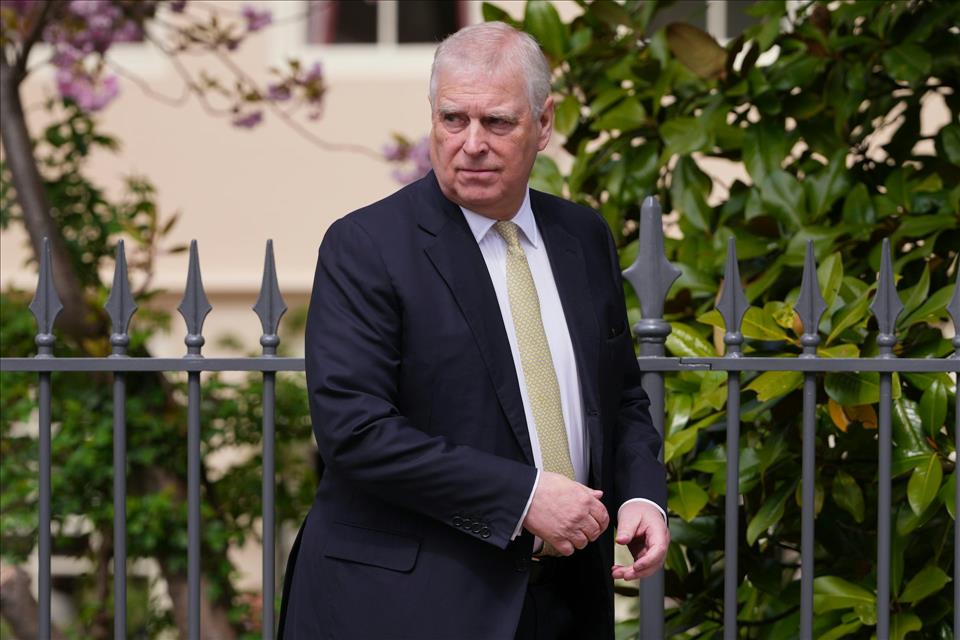
No Longer 'Prince Andrew': An Expert On How Royals Can Be Stripped Of Their Titles
A statement from Buckingham Palace said:
The statement also noted Andrew will have to leave his current home, Royal Lodge, and move to alternative private accommodation.
These moves follows allegations, which Andrew continues to“vigorously deny”, surrounding his relationship with convicted sex offender Jeffrey Epstein.
But how can a prince – who is, after all, the son of a queen – be stripped of the title“prince”?
Here's how it works – and what it might mean for succession.
How do you actually strip a prince of his titles?This is within the remit of the monarch, Charles III. The monarch issues an official document called a letters patent.
They are typically used to grant a title or a right, but this is doing the opposite: withdrawing it from Andrew.
There are precedents for monarchs removing titles in this way. When Diana and Charles divorced, she lost the use of“Her Royal Highness”, as did Sarah Ferguson, the former wife of Andrew. So a royal losing their title doesn't always have to be scandalous or unusual.
But what's not happened yet – because it's not within the remit of the king – is the removal of Andrew's position as eighth in line to the throne.
That requires parliamentary legislation to do – and not just the Westminster parliament, either.
To do that, the Westminster parliament would have to introduce a bill and pass it. However, the move would also require virtually identical legislation in all of the Commonwealth parliaments (such as Australia, New Zealand, Canada and so on).
That's not beyond the realm of possibility.
A bit over a decade ago, with what came to be known as the Perth agreements, the Commonwealth parliaments agreed to change the rules around succession and gender. No longer would older princesses be leapfrogged by younger brothers to get a spot on the throne.
It happened very smoothly, so it is certainly possible for all Commonwealth parliaments to agree to coordinate on something. However, the Westminster parliament cannot instruct other parliaments to pass such legislation.
So, could all the Commonwealth parliaments coordinate to remove Andrew from the line of succession? I have not seen any mention of this in media reports so far, but I would be highly surprised if this didn't happen in future.
It seems incompatible that Andrew would lose his title and still be in line for succession.
King Charles will strip his brother, Andrew, of his royal titles. AP Photo/Joanna Chan, File But is the son of the queen not always a prince?
By custom, yes, the son of a queen is known as a prince. But as we have seen, that title can be removed.
The best example is in 1936, when King Edward VIII abdicated so as to marry divorcee Wallis Simpson, and he lost the title of king.
He was thereafter no longer entitled to the title“His Royal Highness” and he got a new title: Duke of Windsor. He had some prestige, but was no longer entitled to use his royal title.
Edward VIII (who was also Andrew's great uncle) did not have any children. But if he had, they wouldn't have been entitled to inherit the throne.
And that was an actual reigning king, not just a prince.
Acting in a moment of crisisAndrew has reportedly accepted the latest decision but it was made by his brother, the king.
This is a signal from Charles not just to the public but also to his heir, William, that he's doing everything he can to smooth the path for William's succession and to respond to public anger over the allegations against Andrew.
As an historian, this is a moment to reflect on how this is another example of the British monarch taking decisive action in a moment of crisis, to save the reputation of and public support for the monarchy.
Another example would be King George V, who acted decisively in the first world war not only to strip titles from family members who had supported Germany in the war, but to also change the name of his family.
They were known as Saxe-Coburg Gotha (a German name), but they became the house of Windsor.

Legal Disclaimer:
MENAFN provides the
information “as is” without warranty of any kind. We do not accept
any responsibility or liability for the accuracy, content, images,
videos, licenses, completeness, legality, or reliability of the information
contained in this article. If you have any complaints or copyright
issues related to this article, kindly contact the provider above.

















Comments
No comment